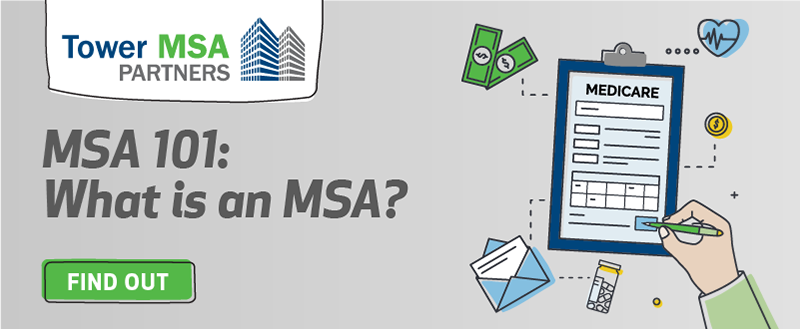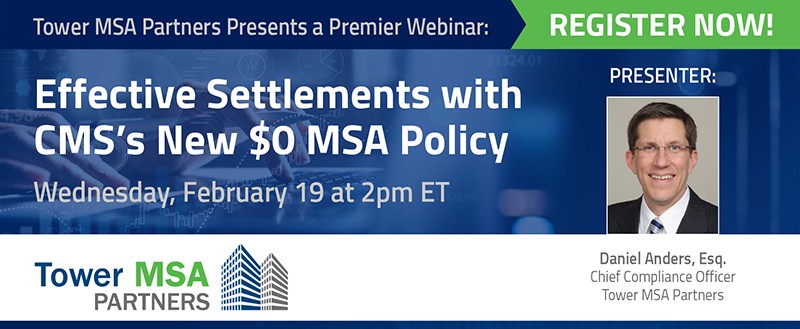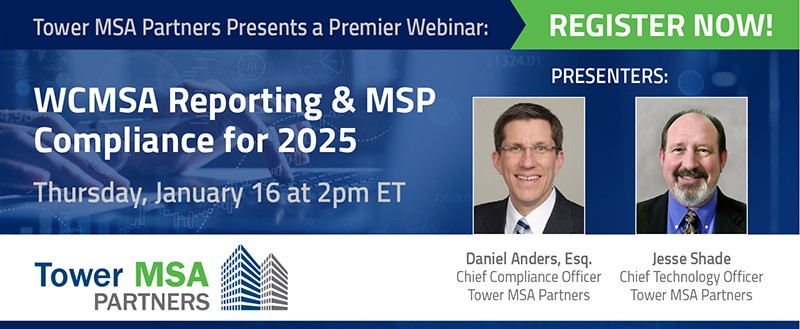When planning a settlement with a Medicare beneficiary injured worker or someone close to becoming a Medicare beneficiary, ensuring that the burden of future medical care is not shifted to Medicare is paramount. In our previous posts, we introduced the fundamentals of Medicare Set-Asides (MSAs) and detailed how they work within workers’ compensation claims. Now, we take a closer look at the key factors, such as projected medical costs, specific monetary thresholds, and special circumstances, that determine whether an MSA is required.
Refining the Decision: Beyond the Basics
While earlier blogs explained the overall structure and regulatory importance of MSAs, this post focuses on the critical evaluation of each case. Determining whether an MSA is necessary hinges on two primary considerations: Medicare eligibility and settlement size. At the same time, there are instances where, after a thorough review, a $0 MSA is both appropriate and legally supported.
Medicare Eligibility: Immediate vs. Imminent
A starting point to determine the need for an MSA is whether the injured worker is or is not Medicare eligible.
- Immediate Eligibility:
For injured workers who are already covered by Medicare, any settlement must include an MSA (CMS now requires the payer to report the MSA amount at the time of settlement), whether that is a $0 allocation or an earmark of funds exclusively for care that Medicare would otherwise cover. - Imminent Eligibility:
When a claimant is not Medicare eligible but is expected to qualify for Medicare within the next 30 months due to being 62 ½ or older or having applied for or receiving Social Security Disability Insurance (SSDI) benefits, an MSA should also be a consideration – especially when there is a clear need for long-term future medical care.
Settlement Size: Monetary Thresholds as a Trigger
For many years, CMS has had in place monetary thresholds for when they will review and approve an MSA:
- For Medicare-eligible individuals, settlements exceeding $25,000 allow for a CMS-approved MSA.
- For those approaching Medicare eligibility, settlements where anticipated future healthcare costs exceed $250,000 allow for a CMS-approved MSA.
Whether an MSA is submitted to CMS or not, most settling parties will include an MSA in the settlement if these triggers are met. The situation becomes more complicated when the monetary thresholds are not met.
For example, consider a Medicare-eligible claimant where the settlement will be $15,000. As noted earlier, CMS requires you to report an MSA amount. As such, either a $0 or a specific MSA dollar amount will need to be included in the settlement.
Now say you have a $100,000 settlement involving a 63-year-old claimant who is not a Medicare beneficiary, the injured worker’s specific medical history and need for long-term medical care should be considered in determining whether an MSA is appropriate.
$0 MSA
In many cases, reserving funds for future medical care is necessary, yet thorough medical and legal evaluations sometimes support a $0 MSA. Recent policy changes have further clarified this area. We will cover this in more detail in a future post.
MSA Decision Best Practices
Here are some targeted best practices for determining whether an MSA is necessary:
- Identify the Medicare status of the claimant.
- If you are a payer, then you have access to the Section 111 reporting information on whether the claimant is a Medicare beneficiary. If not a payer, then make an inquiry to the claimant as to their Medicare status. If not a Medicare beneficiary, then are Medicare’s interests nonetheless implicated based on their age or having applied for SSDI benefits?
- Follow Tower’s “Do I Need a Workers’ Compensation Medicare Set-Aside (WCMSA)” decision tree to determine whether an MSA is appropriate.
- Settlement Value and the MSA
- CMS MSA Submission Approval:
While an MSA may be a consideration in any settlement involving a Medicare beneficiary claimant or one close to Medicare eligibility, depending on settlement value, CMS approval of the MSA can be obtained. - Non-CMS Approved MSAs:
An MSA should still be considered when CMS MSA approval cannot obtained. This is especially true when the claimant is a Medicare beneficiary, even when the settlement is $25K or less and where the claimant has applied for or is receiving SSDI, even when the settlement is $250K or less.
- Engage Specialized Expertise
- Consult Compliance Experts:
Collaborate with attorneys, or experts like Tower MSA Partners, specializing in Medicare Set-Asides to ensure that every decision is compliant with CMS and state guidelines. - Stay Updated:
Keep abreast of any regulatory changes, such as the recent CMS update eliminating $0 MSA reviews, to ensure ongoing compliance.
- Enhance Stakeholder Communication
- Internal Alignment:
Ensure that all team members, from legal advisors to claims adjusters, understand the criteria for establishing an MSA. - Client Transparency:
Clearly explain to injured workers how their settlement is structured and the rationale behind inclusion of an MSA in settlement, ensuring they understand the implications for their future care.
Conclusion
Determining whether a Medicare Set-Aside is necessary involves a careful analysis of Medicare eligibility and settlement value. An MSA may be needed in both situations where CMS approval and can and cannot be obtained. In either case, the goal for the settling parties is to close out medical with the reasonable assurance that they have not shifted the burden of future medical care to the Medicare program. In most cases this will involve some type of allocation for future medical care while in some a $0 MSA may be the right solution.
For personalized guidance on evaluating your case or determining the most appropriate MSA strategy, Tower MSA Partners is here to help. Contact our team to navigate the complexities of Medicare Set-Asides with confidence.
Stay tuned for the next article in our series on “What is Included in an MSA?”











